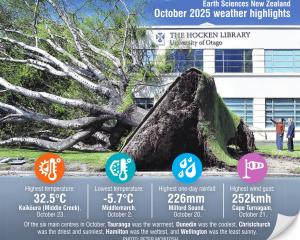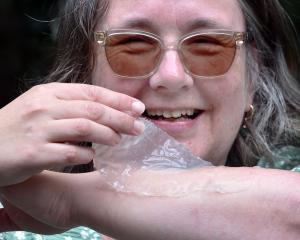
All that is left of the big 8000-sheep woolshed at Teviot Station following the fire. — Otago Witness, 30.12.1924
Falling leaves return to their roots
Every falling leaf carries with it to its grave on the ground a mystery which those who delight in discovering Nature’s ways would give much to penetrate. Needless to say, the material contained in the fallen leaves is not wholly lost. As the leaves decay, much of their substance is converted again into the simple compounds from which that substance was manufactured; but some leaves decay only partially and give rise to humus from which fungi and non-green plants derive sustenance and from which also the tree from which the leaves fell does not disdain to draw upon for its further nutriment. Knowing this, the gardener takes care to collect all available fallen leaves and to compost them, for in these days of shortage of stable manure leaf mould — always precious to the cultivator — has become of very great value in the garden. It is a mistaken practice to burn the waste vegetable debris of the garden. All of it, if properly composted, helps to maintain the fertility of the soil; entering once again into the bodies of new generations of plants it continues the endless migration from the inorganic to the organic and back again to the inorganic world.
Summer break
This year Christmas Day falls on a Thursday, and therefore Thursday and Friday will be holidays, and it was decided by the retailers yesterday that shops should be closed during part of Christmas and New Year weeks. This will mean that retail premises will be closed from Wednesday, December 24, until the following Monday morning, giving employees four clear days to themselves. The same applies to the New Year time, when retail premises will be closed from Wednesday, December 31, until Monday, January 5. — ODT, 15.1.1924
Compiled by Peter Dowden












